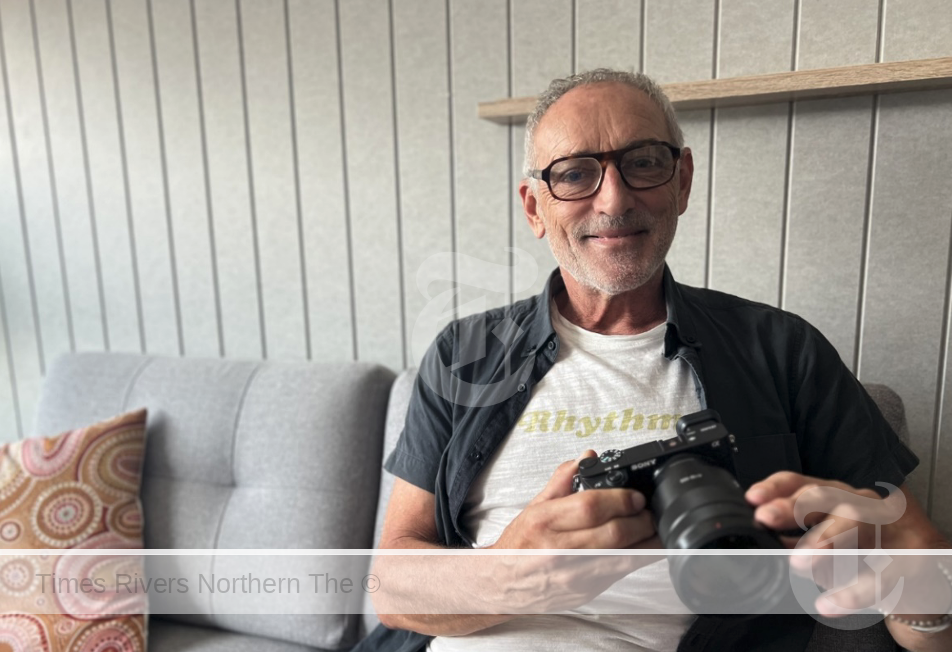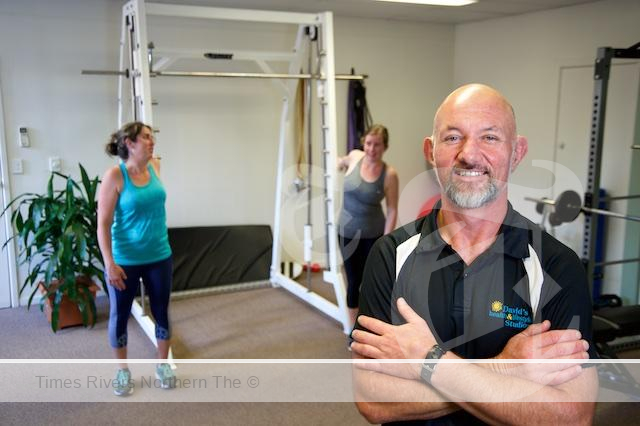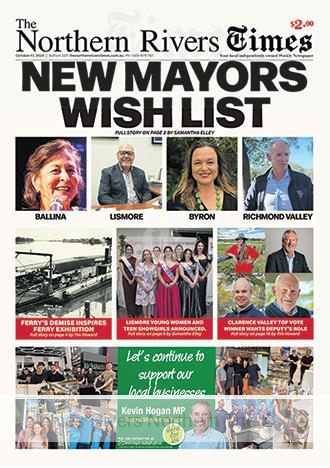headspace music program hits right note for mental health
It is Mental Health Month and headspace Lismore and Tweed teams are emphasising the importance of seeking support, saying it may look different to what people think.
headspace Senior Manager, Sim Balzer, says nowadays mental health support can take many varied forms.
“It can be creative, or active; in groups with peers, or it can be one-on-one and from the comfort of your bedroom. The great thing is, we can connect young people with the support style that works for them,” Balzer said.
Wednesday 9 October is National headspace Day and this year’s theme, “Pause. Reflect. Reconnect.”, encourages young people to find balance amidst life’s challenges by reconnecting to things that bring them joy. If that thing is music or filmmaking, then headspace Lismore have some programs for you.
Level 3 Music Studio
The Level 3 Music Studio is delivered by headspace Group Facilitator, Vincent McManus, better known as Vinnie. Passionate about the therapeutic benefits of music, Vinnie supports more than 30 young people a year through his music studio.
“Music not only allows young people to engage in creative expression, but it also helps them to define who they are and their place in the world and can bring about a wonderful sense of confidence and achievement”, Vinnie said.
“I believe the creative process is a powerful therapeutic avenue for young people to explore. And if some young artists want to find a pathway into the music industry, I can help them along their way,” Vinnie said.
Vinnie has assisted young musicians to enter national songwriting competitions, find paid performing gigs and record their music, as well as helping young actors with showreels and understanding what it takes to work in the film industry through his other group, the filmmakers Media Hub.
To connect with these groups young people first sign up to headspace support and meet with a member of our intake and access team.
“Often what’s been happening is, people find out about Music Studio and how awesome it is, and then sign up to headspace so they can access it,” Vinnie said. “Before signing up many don’t realise they get access to a counsellor completely free. And they may not have considered doing those sessions before. It is this wrap around support that can be so effective.”
“When you pull off a good song with someone who was feeling quite broken, and you create something so beautiful… it is wonderful. You watch them grow this confidence in themselves,” Vinnie said.
Local Lismore singer songwriter Mia French has been part of the Level 3 Music Program and supported by headspace for several years and says it is helpful to find someone to talk to and who listens and understands.
“And then I found out there was a music studio program which was crazy! And just perfect for me,” Mia said.
“I was able to record and produce my own original songs in a professional little studio, which was an amazing opportunity and something I had never had the chance to do before.
“I got to collaborate with other musicians, make new friends and even perform live gigs.
“I can honestly say that the support from the people and programs at headspace have really helped me find a stronger sense of what I can actually achieve,” Mia said.

Vincent ‘Vinnie’ McManus
Film, art and fresh fruits groups
If music isn’t your thing, there are other activities and groups to access including arts, games, Fresh Fruits LGBTIQSB+ group and of course, the film group, Media Hub.
“With the Media Hub, what I love seeing is the peer support,” Vinnie says. “When someone comes in and they’re talking about their stuff and someone else in the group says, ‘you know, I’ve been there, you should try this…this is what I’ve done’.
“There’s an incredible sharing of real information, and I love that. It is group members saying, “I’ve got you. I’ve got you.”
Youth mental health from the view of a young person
Sam Baynham is a member of headspace Lismore’s Young Peoples’ Advisory Committee (YPAC) and says there are still multiple barriers to young people seeking support for their mental health including transport access issues, stigmatisation, and cost of living pressures.
“The constant comparison where you are told there are people who are worse off – it’s a barrier to seeking support, it invalidates your experience. That stops a lot of people from seeking help, they think ‘there are people who need it more than me’, or ‘my issues aren’t enough,’” Sam said. “The cost of everything is a barrier also. Even just getting into a GP to get a care plan made up is difficult.”
When asked about some of the key challenges facing young people Sam said the impacts of the pandemic and flood are still lingering.
“They are still having a big ripple effect on young people’s mental health, and I think this will be around for quite a long time yet.”
“Definitely over the past couple of years the main challenges have been cost of living, cost of housing, food security and climate change – the worry is a big weight. Especially after Covid and the floods – at some point it all intertwines with one another.”
“I think social media is a big issue also, especially stuff like Snapchat and TikTok. Cos’ you know, people just post little snippets of the good parts of their lives. And there’s a lot of comparing that goes on in social media. A lot of it is false stuff, it can be damaging.”
“There’s no escape from social media. And if bullying is happening over Snapchat, it disappears, there is no trace of it.”
Sam’s message to other young people is to connect in to support at any time.
“Even when things aren’t going on, it’s ok to have those conversations at any time. You don’t have to be in a bad space to seek out support.”
Anytime is the right time for support
headspace Senior Manager Sim Balzer says it is encouraging to see young people accessing various forms of support at headspace Lismore, whether it’s counselling, seeing a GP or clinic nurse, attending groups, or producing film or music.
“This integrated, multi-faceted approach to care places the young person’s interests and strengths at the heart of the support, which is what makes it so effective.”
She also wants to stress that anytime is the right time to seek support.
“There are pointy bits to life, that’s for sure. But you don’t need to wait until things get worse. There is no judgment on whether your problem is too big or too small – we’re here for anyone who needs to chat,” Sim said. “Don’t be afraid to walk through the door.”
headspace, Australia’s National Youth Mental Health Foundation, provides early intervention mental health services to 12–25-year-olds.





 Tweed Shire News2 years ago
Tweed Shire News2 years ago
 Motoring News2 years ago
Motoring News2 years ago
 COVID-19 Northern Rivers News3 years ago
COVID-19 Northern Rivers News3 years ago
 COVID-19 Northern Rivers News3 years ago
COVID-19 Northern Rivers News3 years ago
 Northern Rivers Local News3 years ago
Northern Rivers Local News3 years ago
 Health News3 years ago
Health News3 years ago
 COVID-19 Northern Rivers News3 years ago
COVID-19 Northern Rivers News3 years ago
 NSW Breaking News3 years ago
NSW Breaking News3 years ago































